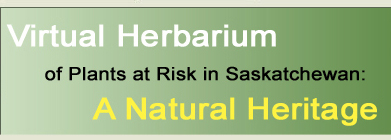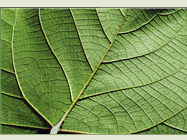
|

|

|

|

|

|

|
|
|
|
|
|
| Parnassia palustris var. montanensis (Fern. & Rydb. ex Rydb.) C.L. Hitchc. | Species Image Gallery (opens in a new window) |
||||||||||||||||||||||||||
| TAXONOMY | |||||||||||||||||||||||||||
| Family: | Saxifragaceae | ||||||||||||||||||||||||||
| Genus: | Parnassia | ||||||||||||||||||||||||||
| Species Synonyms: | Parnassia montanensis Fern. & Rydb. ex Rydb. | ||||||||||||||||||||||||||
| Common Names: | mountain grass-of-parnassus | ||||||||||||||||||||||||||
| DISTRIBUTION | |||||||||||||||||||||||||||
| Canada: | Yukon – western Mackenzie District, south to British Columbia – southwestern Alberta, northern Saskatchewan | ||||||||||||||||||||||||||
| Saskatchewan: | northeastern Saskatchewan; Lake Athabasca | ||||||||||||||||||||||||||
| Ecoregion: | Tazin Lake Upland | ||||||||||||||||||||||||||
| HABITAT | |||||||||||||||||||||||||||
| Saskatchewan: | wet meadows and thickets | ||||||||||||||||||||||||||
| RARITY STATUS | |||||||||||||||||||||||||||
| Provincial
Status According to Harms (2003): |
Threatened |
||||||||||||||||||||||||||
| Nature Conservancy Status: | G5T4 |
||||||||||||||||||||||||||
| Saskatchewan
Species at Risk Status: |
None |
||||||||||||||||||||||||||
| COSEWIC Status: | None |
||||||||||||||||||||||||||
| Mountain grass-of-parnassus is threatened because of rarity in Saskatchewan. No immediate threats are known but may occur in the future. | |||||||||||||||||||||||||||
| SPECIES DESCRIPTION | |||||||||||||||||||||||||||
| Height: | 10 – 30 cm | ||||||||||||||||||||||||||
| Roots: | roots fibrous | ||||||||||||||||||||||||||
| Stems: | ca. 1 mm wide, solitary or clustered | ||||||||||||||||||||||||||
| Leaves: | basal, stalks 0.5 – 4 cm long, blade 1 – 2 cm long, oval to triangular, base rounded or nearly heart-shaped; stem leaf on lower third of stem, scarcely clasping | ||||||||||||||||||||||||||
| Inflorescence: | flowers solitary, terminal | ||||||||||||||||||||||||||
| Flowers: | sepal lobes ascending in flower, spreading in fruit, 4 – 11 mm long; petals only slightly exceeding the sepals, oval, 5 – 9-veined, cream or yellowish; sterile stamens with 5 – 7 segments | ||||||||||||||||||||||||||
| Fruits: | capsules ovoid, many-seeded | ||||||||||||||||||||||||||
| |||||||||||||||||||||||||||